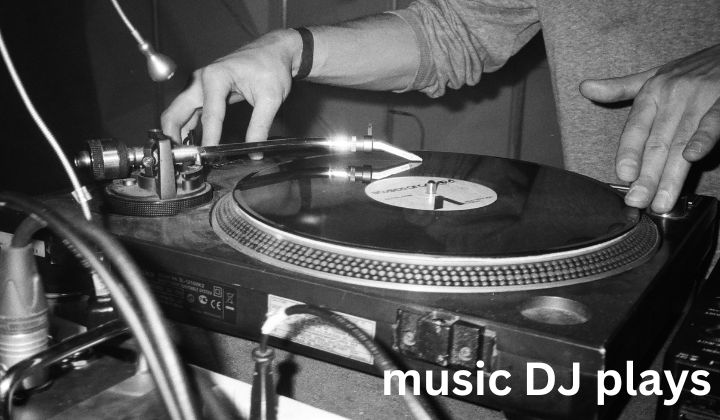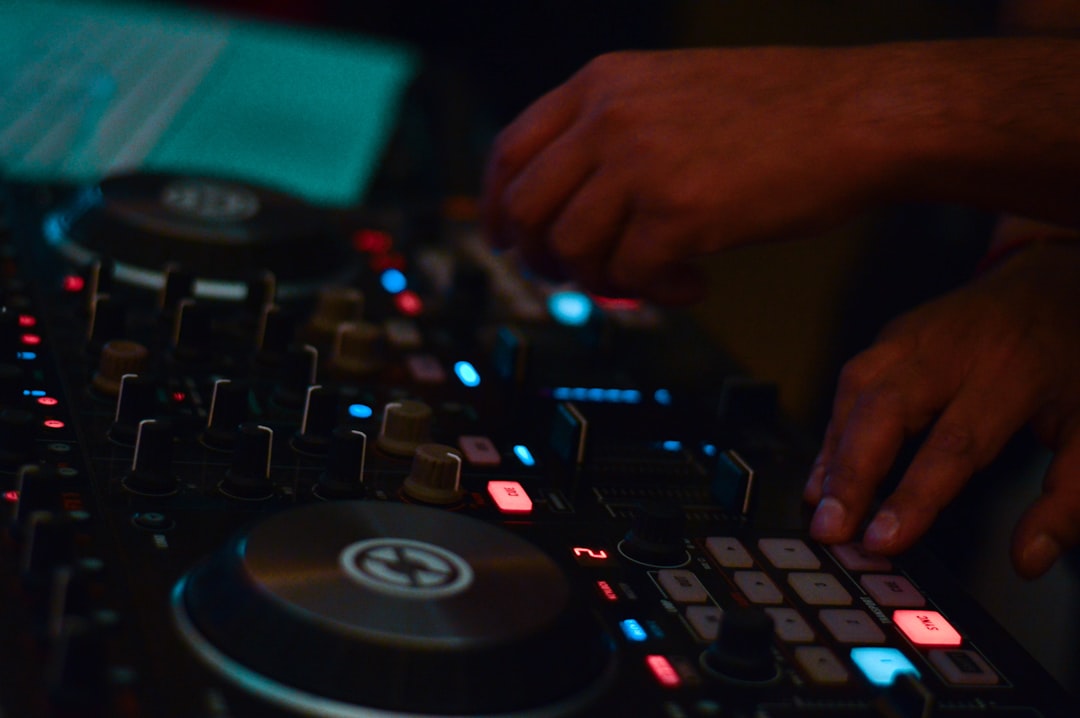What kind of music DJ plays?
The role of a DJ in the music industry
The role of a DJ in the music industry is multifaceted and crucial to the success of any event or venue. DJs are responsible for creating an atmosphere that engages and entertains the audience through their musical selections, mixing skills, and ability to read the crowd. They have the power to set the mood, energize a party, or create a chill ambiance depending on the genre they choose to play.
DJs have a wide range of music genres at their disposal, allowing them to cater their sets to different events and audiences. Some DJs specialize in specific genres like electronic dance music (EDM), hip-hop, or rock, while others have broader repertoires that span across various styles. The choice of music depends on factors such as the venue type, target demographic, and occasion. A skilled DJ can seamlessly transition between different genres, creating a unique sonic experience that keeps people dancing and engaged throughout their performance.
In addition to playing popular tracks from established artists, many DJs also take pride in discovering underground or emerging talent. They often incorporate lesser-known tracks into their sets as a way of introducing new sounds to their audience and promoting up-and-coming artists. This not only adds diversity and freshness to their performances but also helps shape trends within the music industry as listeners become exposed to new styles and artists through these tastemakers behind the decks.
Genres: Exploring different types of music
The DJ, as the master of the music, has the ability to explore and play a wide range of genres. One genre that a DJ may delve into is electronic dance music (EDM). This genre encompasses various subgenres like house, trance, dubstep, and drum and bass. EDM is known for its energetic beats and pulsating rhythms that create an electrifying atmosphere on the dance floor.
Another genre that DJs often explore is hip-hop. Originating in African American communities in the 1970s, hip-hop has evolved into a global phenomenon with its distinctive style and rhythm. It combines elements of rap, scratching, beatboxing, and sampling to create a unique sound that resonates with listeners across different cultures. DJs who specialize in hip-hop are skilled at mixing tracks seamlessly while maintaining the groovy vibe that keeps audiences moving.
In conclusion, DJs have the freedom to explore various genres of music depending on their audience’s preferences and the atmosphere they want to create. Whether it’s EDM or hip-hop or any other genre under the sun, a skilled DJ knows how to blend different styles together seamlessly to create an unforgettable musical experience for all.
Crowd preference: Adapting to audience preferences
When it comes to the kind of music a DJ plays, crowd preference is crucial. A skilled DJ understands that adapting to audience preferences is key in creating an unforgettable experience. They are able to read the energy of the crowd and adjust their playlist accordingly, ensuring that everyone is engaged and entertained throughout the event.
In order to adapt to audience preferences, a DJ must have a diverse knowledge of different music genres and styles. They should be familiar with popular songs across various decades and be able to seamlessly transition between different genres based on the reaction they receive from the crowd. By doing so, they can cater to different age groups and musical tastes present at an event, ultimately keeping everyone on their feet and enjoying themselves.
Furthermore, a good DJ knows how to strike a balance between playing well-known hits that will get people dancing along and introducing them to new tracks or remixes they may not have heard before. This keeps things fresh and exciting for the audience while also showcasing the DJ’s creativity and ability to curate unique sets. Ultimately, by adapting their music selection based on audience preferences, DJs can create an atmosphere that resonates with each individual in attendance, leaving them with lasting memories of an incredible night filled with great music.
Event type: Tailoring music for specific events
One important aspect of being a DJ is tailoring the music to suit specific events. The type of music played at an event can greatly influence the overall atmosphere and the enjoyment of the attendees. For example, at a wedding reception, the DJ may choose to play a mix of romantic ballads and popular dance tracks to cater to the diverse tastes of guests. On the other hand, at a corporate networking event, background music that is not too distracting but still creates a pleasant ambiance may be more appropriate.
The choice of music also depends on factors such as the theme or purpose of the event. For instance, if it is a 90s-themed party, playing hit songs from that decade would create a nostalgic and fun atmosphere. Additionally, considering the demographics and preferences of attendees is crucial for selecting suitable music. A DJ must have an extensive knowledge of different genres and styles in order to curate playlists that resonate with various audiences.
In conclusion, tailoring music for specific events requires DJs to consider several aspects such as the type of event, its theme or purpose, as well as demographics and preferences of attendees. By understanding these factors and having a versatile collection of songs across various genres, DJs can create an enjoyable and memorable experience for everyone involved in an event.
Personal style: Individual DJ preferences and influences
When it comes to personal style, DJs have their own unique preferences and influences that shape the kind of music they play. Some DJs may gravitate towards a specific genre, such as house, techno, hip-hop, or drum and bass. These genres often reflect their individual tastes and what resonates with them on a personal level.
In addition to genre preferences, DJs are also influenced by other artists and producers who inspire them. They may draw inspiration from legendary figures in the industry like Carl Cox or Richie Hawtin, adopting their techniques and incorporating them into their own sets. Additionally, emerging talents can spark creativity within DJs as they discover fresh sounds and innovative approaches to blending tracks together.
Ultimately, a DJ’s personal style is a culmination of their own musical journey and experiences. It reflects not only their preferred genres but also the artists who have left an indelible mark on them. This blend of influences shapes the unique soundscapes that DJs create when performing live or producing tracks in the studio.
Collaboration: Working with other artists and producers
When it comes to collaboration in the music industry, working with other artists and producers can be a game-changer for a DJ. Collaboration allows DJs to bring fresh ideas, perspectives, and skills to their music, ultimately enhancing their sound and expanding their creative horizons. By teaming up with other artists and producers, DJs can tap into a wider range of musical talents and genres, resulting in unique and innovative tracks that resonate with a diverse audience.
Working with other artists brings an element of surprise and excitement to a DJ’s set. It allows them to blend different styles seamlessly, creating new sonic experiences that captivate listeners. Moreover, collaborating with producers gives DJs access to cutting-edge production techniques and technology, enabling them to push the boundaries of their own creativity. This collaborative process fosters mutual learning and growth among all involved parties while also cultivating valuable connections within the music industry.
Ultimately, collaboration is an essential aspect of a DJ’s career as it not only enhances their own artistry but also opens doors for potential collaborations with even more influential figures in the future. By embracing teamwork and actively seeking opportunities for collaboration with fellow artists and producers alike, DJs can continue evolving as musicians while producing high-quality tracks that leave a lasting impact on both themselves and their listeners.
Conclusion: The diverse world of a DJ.
The world of a DJ is incredibly diverse when it comes to the kind of music they play. DJs have the ability to cater to various genres and styles, depending on the event or venue they are playing at. Some DJs specialize in electronic dance music (EDM), mixing high-energy tracks that keep crowds dancing all night long. Others may focus on hip-hop and rap, curating playlists that showcase the latest hits from this genre.
Additionally, there are DJs who excel in playing house music, creating a deep and groovy atmosphere for club-goers. These DJs often experiment with different subgenres such as deep house, tech house, or progressive house, tailoring their sets to create a unique sonic experience for their audience. Furthermore, there are DJs who embrace more alternative or underground genres like indie rock or experimental electronica, pushing boundaries and introducing audiences to new sounds.
Overall, the diversity in the kind of music a DJ plays is what makes this profession so exciting. Whether it’s bringing people together on a crowded dancefloor with pulsating EDM beats or creating an intimate ambiance with mellow jazz tunes at a lounge bar – there is no limit to what a skilled DJ can offer through their musical selections.






